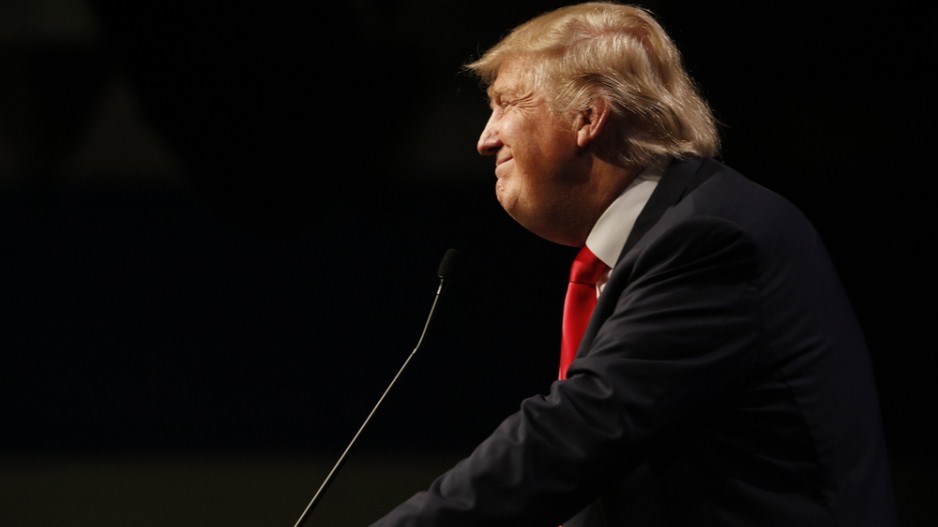In less than three months, Americans will find out whether Donald Trump will spend four more years at the White House. The United States heads to the final stages of an electoral campaign like no other, with “physically distanced” conventions on account of the COVID-19 pandemic.
Most Canadians are paying attention to news from the United States. Last month, Research Co. and Glacier Media reported on a significant decline in the proportion of positive views of our neighbouring nation, from 47% in December 2019 to 32% this summer. Concerns about re-opening the border for all traffic during the pandemic are also prevalent, and a flight to the United States is one of the least-favoured tourism activities that Canadians would entertain without a COVID-19 vaccine.
It is not a surprise to tie the current commander-in-chief to these negative opinions. This month, only 17% of Canadians told us that having Donald Trump as president has been “very good” or “good” for Canada. This represents a four-point drop since the start of the year. It may not sound like a drastic change, but there is a finer detail in the findings.
The level of strong animosity towards Trump from Canadians has grown in every survey we have conducted. In June 2019, 15% of Canadians said the American president had been “very bad” for Canada. By January 2020, the proportion jumped to 29%. This month, it ballooned to 47%. Put another way, in just over a year, the number of Canadians who regard Trump as unquestionably negative has tripled.
While Conservative Party supporters in Canada tend to have a better assessment of Republican White House dwellers, the numbers for Trump are poor this month. Just 28% of Tory voters think he has been good for Canada, while 63% believe he has been bad.
In no region of the country can we find one in four residents who believe Trump’s tenure has been beneficial. The numbers are lowest in British Columbia (14%) and highest in Manitoba and Saskatchewan (20%).
I had the opportunity to measure public opinion in Canada and the United States during the administration of Barack Obama, and the views of Canadians on the previous president were positive during his eight years in office. Some of that goodwill has stayed with the man who served as his vice-president for eight years and is now looking to defeat Trump. Across the country, 44% of Canadians think having Joe Biden as president will be “very good” or “good,” while 23% expect him to be “bad” or “very bad.”
Canadians who voted for the Liberal Party or the New Democratic Party (NDP) in 2019 are more likely to expect great things from Biden (57% and 51% respectively). But in any case, one-third of Canadians (33%) are simply not sure about what effect he would have on our country.
We could assume that any nominee of the Democratic Party running against Trump would tend to garner positive views in Canada. Still, there are concerns about protectionism and the influence from American unions on Biden, although trade relations have not been fantastic under the current Republican president.
In spite of the evident hatred towards Trump, Canadians are evenly divided on whether elected Canadian politicians should speak their mind if they are concerned about the presidential election in the United States. While 43% want politicians to have their say, a similar proportion (46%) would prefer for them to stay neutral and avoid public statements during the campaign.
On a regional basis, British Columbians, Ontarians and Atlantic Canadians are significantly more likely to wish for an open discussion about the U.S. presidential election from Canadian elected officials (each at 49%) than those who reside in Quebec (38%), Manitoba and Saskatchewan (37%) and Alberta (36%).
The numbers show that Canadians would welcome a Trump defeat, but not necessarily embrace a Biden victory. This is not dissimilar to what is happening in the United States right now. When Research Co. asked Americans about their motivations for supporting each of the two main contenders in this year’s presidential race, the main reason cited by 30% of Biden voters was “disgust with other candidates.” This is higher than traditionally bigger motivators for Democrats, such as ideas and policies (23%) and party allegiance (21%).
If the election were held today, Trump would finish way behind Biden in the popular vote – the same indicator by which he trailed Hillary Clinton in 2016. Trump’s message of disruption was enough to win key states four years ago, but appears to have dwindled at the national level, suggesting that even some traditionally Republican areas might be on the fence.
Along with surveys, one key indicator of Trump’s chances in the next few weeks will be the behaviour of Congressional candidates. If these Republicans start abandoning the “Make America Great Again” message for a focus on conservatism and family values, it would signify the start of the 2024 campaign.
Mario Canseco is president of Research Co.
Results are based on an online study conducted from August 7 to August 9, 2020, among 1,000 adults in Canada. The data has been statistically weighted according to Canadian census figures for age, gender and region in Canada. The margin of error, which measures sample variability, is plus or minus 3.1 percentage points, 19 times out of 20.




